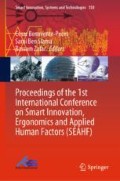Abstract
In recent years, most research areas have focused their attention on the exactitude of Speech Recognition (SR). Despite being reasonably performant in quiet conditions, these systems are indeed far too ineffective in distorted conditions or malformed channels. Given these observations, finding functional feature extraction methods capable of improving the capacities of those systems in non-optimal conditions is more than an indispensable requirement. The present paper presents an investigation that was carried out on those Speech Recognition systems in noisy conditions, with many combinations of new three hybrid feature extraction algorithms such as Teager-Energy Operator-Perceptual Wavelet Packet (TEO-PWP), Mel Cepstrum Coefficient (MFCC) and Perceptual Linear Production (PLP). A (HMM) was also used to classify the extracted features. Our model was tested on TIMIT database that contains both clean and noisy speech files recorded at different level of Speech-to-Noise Ratio (SNR). The analytic bases for speech processing and classification procedures were exhibited and the recognition results were given depending on speech recognition rates.
Access this chapter
Tax calculation will be finalised at checkout
Purchases are for personal use only
References
Lei, S.F., Tung, Y.K.: Speech enhancement for nonstationary noises by wavelet packet transform and adaptive noise estimation. In: Intelligent Signal Processing and Communication Systems (ISPACS 2005), Proceedings of 2005 International Symposium on IEEE, pp. 41–44 (2005)
Firouzeh, F.F., Ghorshi, S., Salsabili, S.: Compressed sensing based speech enhancement. In: 2014 8th International Conference on Signal Processing and Communication Systems (ICSPCS). IEEE, pp. 1–6 (2014)
Donoho, D.: De-noising by soft-thresholding. IEEE Trans. Inf. Theory 41, 613–627 (1995)
Wu, D., Zhu, W.-P., Swamy, M.: The theory of compressive sensing matching pursuit considering time-domain noise with application to speech enhancement. IEEE ACM Trans. Audio Speech Lang. Process. 22(3), 682–696 (2014)
Davis, S., Mermelstein, P.: Comparison of parametric representations for monosyllabic word recognition in continuously spoken sentences. IEEE Trans Acoust. Speech Signal Process. 28(4), 357–366 (1980)
Hermansky, H.: Perceptual linear prediction analysis of speech. J. Acoust. Soc. Am. 87(4), 1738–1752 (1990)
Zhu, Q., Alwan, A.: On the Use of variable frame rate analysis in speech recognition. In: 2000 IEEE International Conference on Acoustics, Speech, and Signal Processing, vol. 3, pp. 1783–1786 (2000)
Rabiner, L.R., Juang, B.-H.: Fundamentals of Speech Recognition, vol. 14. PTR Prentice Hall, EnglewoodCliffs (1993)
Chetouani, M., Gas, B., Zarader, J.: Discriminative training for neural predictive coding applied to speech features extraction. In: Proceedings of the 2002 International Joint Conference on Neural Networks, vol. 1, pp. 852–857 (2002)
Hermansky, H.: Perceptual Linear Predictive (PLP) analysis of speech. J. Acoust. Soc. Am. 87, 1738–1752 (1990)
Hermansky, H., Morgan, N., Bayya, A., Kohn, P.: The Challenge of Inverse-E: The RASTA-PLP Method. In: 1991 Conference Record of the 25th Asilomar Conference on Signals, Systems and Computers, Pacific Grove, 4–6 Nov 1991, pp. 800–804 (1991)
Patterson, R.D., Moore, B.C.J.: Frequency Selective in Hearing, Chapter Auditory Filters and Excitation Patterns as Representations of Frequency Resolution, pp. 123–177. Academic Press Ltd., London (1986)
Kim, G., Lu, Y., Hu, Y., Loizou, P.C.: An algorithm that improves speech intelligibility in noise for normal-hearing listeners. J. Acoust. Soc. Am. 126, 1486–1494 (2009)
Islam, M.T., Shahnaz, C., Zhu, W.-P., Ahmad, M.O.: Speech enhancement based on student modeling of teager energy operated perceptual wavelet packet coefficients and a custom thresholding function. IEEE ACM Trans. Audio Speech Lang. Process. 23(11), 1800–1811 (2015)
Sanam, T., Shahnaz, C.: Enhancement of noisy speech based on a custom thresholding function with a statistically determined threshold. Int. J. Speech Technol. 15, 463–475 (2012)
Sanam, T.F., Shahnaz, C.: A combination of semisoft and -law thresholding functions for enhancing noisy speech in wavelet packet domain. In: 2012 7th International Conference on Electrical & Computer Engineering (ICECE), pp. 884–887. IEEE (2012)
Islam, M.T., Shahnaz, C., Zhu, W.-P., Ahmad, M.O.: Modeling of teager energy operated perceptual wavelet packet coefficients with an Erlang-2 PDF for real time enhancement of noisy speech. Prepr. Submitt. J. LATEX Templates (2018)
Author information
Authors and Affiliations
Corresponding author
Editor information
Editors and Affiliations
Rights and permissions
Copyright information
© 2019 Springer Nature Switzerland AG
About this paper
Cite this paper
Helali, W., Hajaiej, Z., Cherif, A. (2019). Hybrid Feature Extraction Techniques Using TEO-PWP for Enhancement of Automatic Speech Recognition in Real Noisy Environment. In: Benavente-Peces, C., Slama, S., Zafar, B. (eds) Proceedings of the 1st International Conference on Smart Innovation, Ergonomics and Applied Human Factors (SEAHF). SEAHF 2019. Smart Innovation, Systems and Technologies, vol 150. Springer, Cham. https://doi.org/10.1007/978-3-030-22964-1_20
Download citation
DOI: https://doi.org/10.1007/978-3-030-22964-1_20
Published:
Publisher Name: Springer, Cham
Print ISBN: 978-3-030-22963-4
Online ISBN: 978-3-030-22964-1
eBook Packages: Intelligent Technologies and RoboticsIntelligent Technologies and Robotics (R0)

